Dump the debris: 12 items that can go into your skip (and 6 you should leave out)
An expert guide to skip hire rules and etiquette
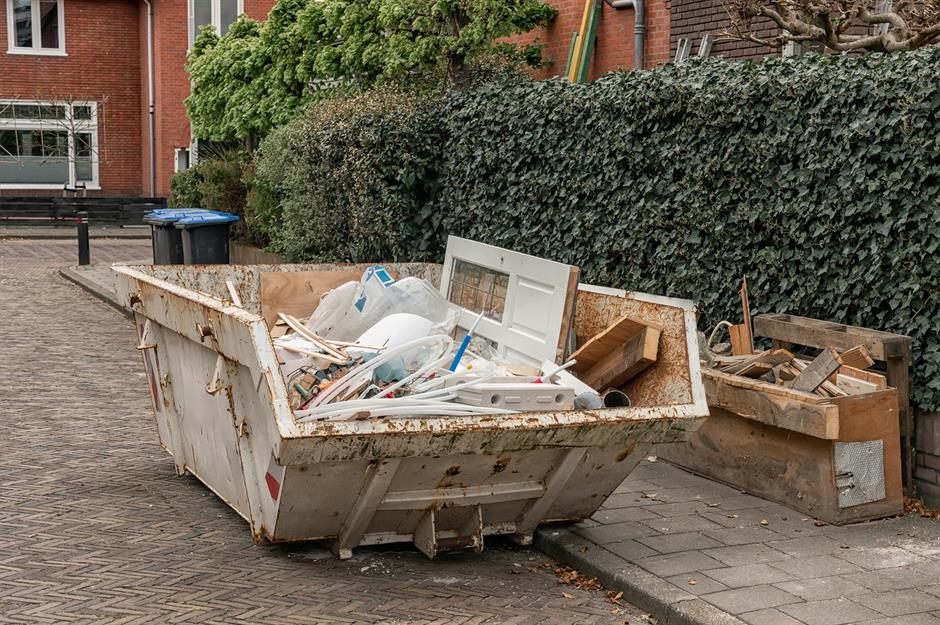
You'd be forgiven for thinking you can throw anything you don't want into a skip, but you'd be wrong! Tighter controls by the Environment Agency mean you now have to seriously consider whether what you're throwing out should be going to landfill, or whether there is a better way to dispose of it. Here, we clear up some of the confusion, sharing skip hire rules and etiquette.
Click or scroll on for 12 things you can put in your skip, and six you should always leave out...
The hidden cost of renovations
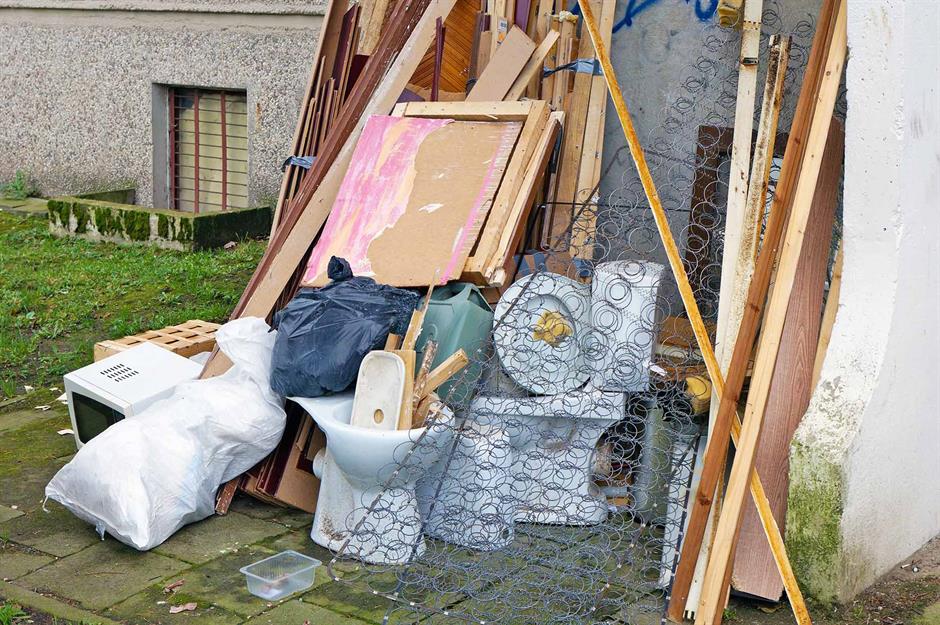
More than half of British homeowners choose to improve their property, rather than move, according to a 2025 survey, with the cost of moving and other financial pressures being the top reasons. If this is you, then you're probably closely watching your budget.
However, disposing of waste, especially when it comes to skips, can be confusing and may incur hidden costs. From permits and overloading fees to charges for prohibited items, the cost of disposing of household waste can soon stack up.
How much does a skip cost?
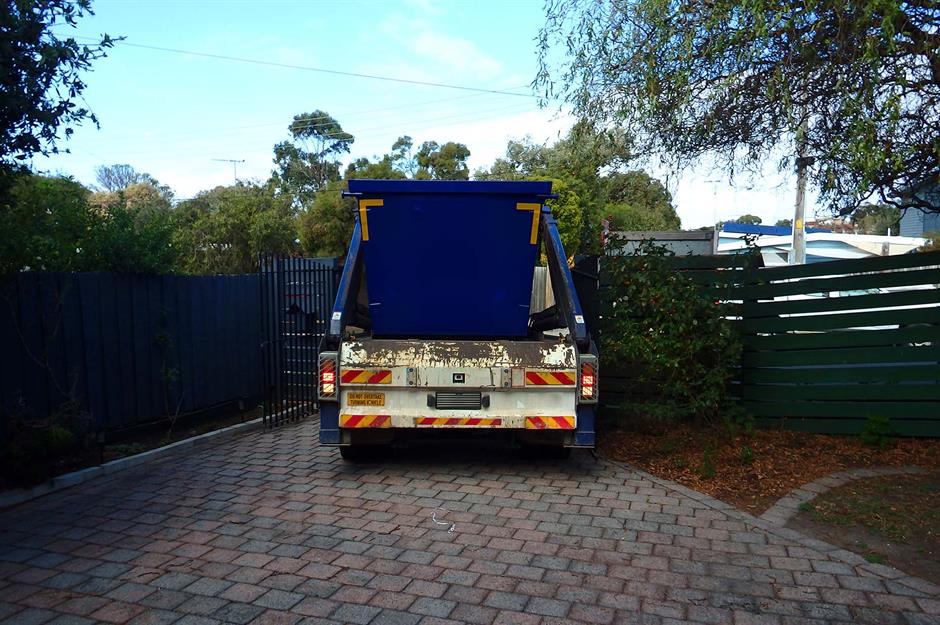
According to Checkatrade, skip hire prices in the UK range from £75 to £450 per week, depending on the size of the skip you need. A builder-size skip (6-8 yards) costs between £190 and £450 to hire.
For smaller clear-outs, you might get away with a mid-sized skip (£130–£320 for 4-5 yards) or even a mini skip (£75-£175 for 2-3 yards). However, other factors will affect the skip-hire cost, including the region you live in and the duration of the hire.
Sponsored Content
Where can I put my skip?
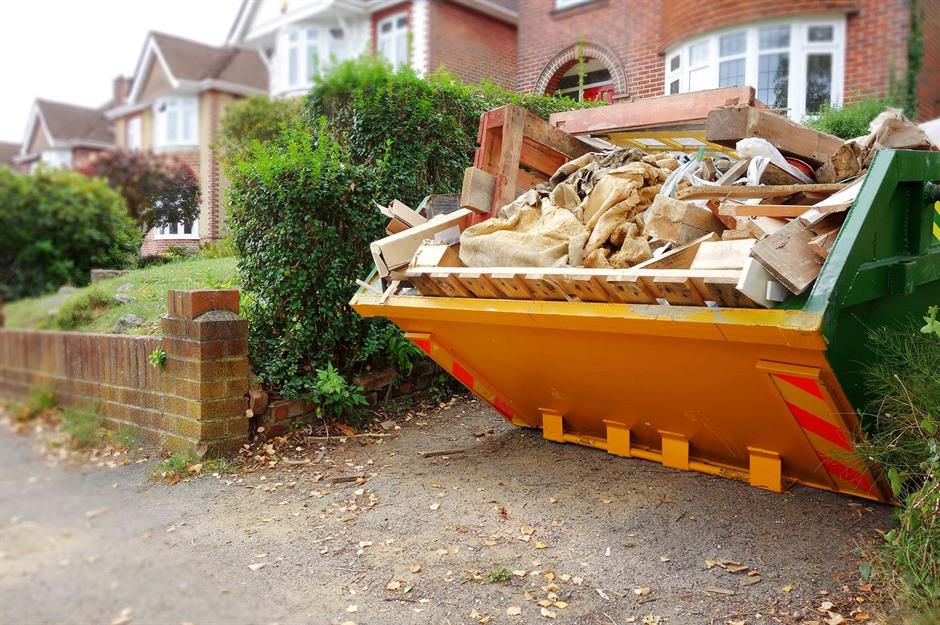
Before you order, consider where you will put your skip. Many local authorities require you to purchase a permit to place a skip on public property, such as a road or pavement. Permit fees vary depending on where you live, but can range from £30 to over £150, according to J N Waste Clearance.
Failure to acquire one can result in a hefty fine of up to £1,000. You don't need a permit to put a skip on private property, like a driveway, but it's polite to check with any neighbours who might be inconvenienced, to avoid potential issues down the line.
What are the rules?

If your skip is located on public land, then you are required to install safety lights and markings to ensure no one is injured. Failure to do so could result in a fine of up to £1,000.
While underestimating what size skip you need could mean you end up having to get two, some skip companies also charge a fee if you put things in it that shouldn’t be there. The rules are complicated, so we've created a basic guide to help you get it right the first time...
What CAN go in a skip: garden waste
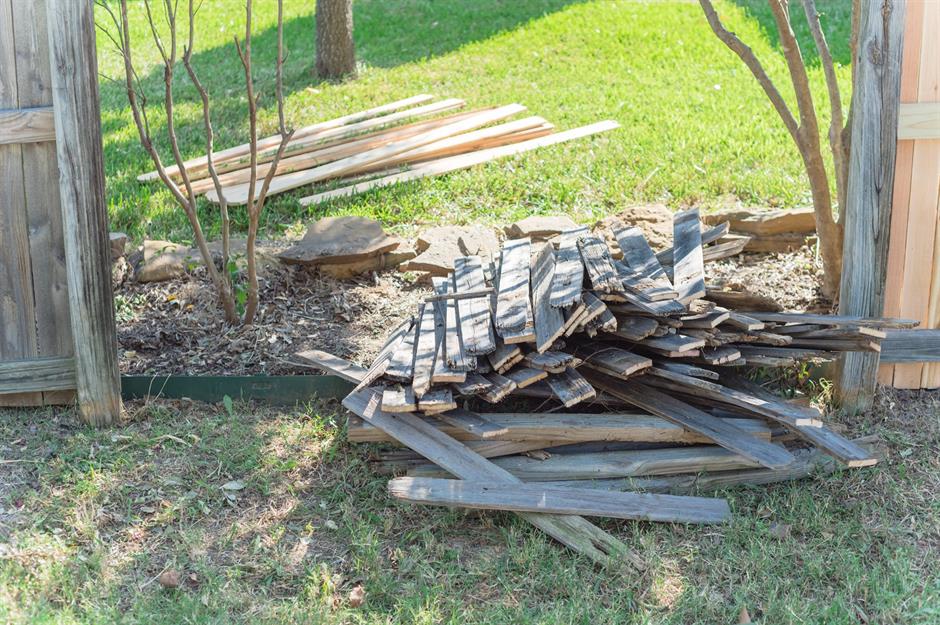
If you're giving your garden a makeover, then you'll likely have a substantial amount of waste to get rid of. While organic waste like leaves, branches and grass can be added to a compost bin to biodegrade, other items like broken fencing, paving slabs, turf and soil will need to be disposed of differently.
You can try to sell off any usable materials on sites like eBay or Gumtree, or give them away to someone looking for second-hand materials. If not, then they can be added to your skip.
Sponsored Content
What CAN go in a skip: scrap metal
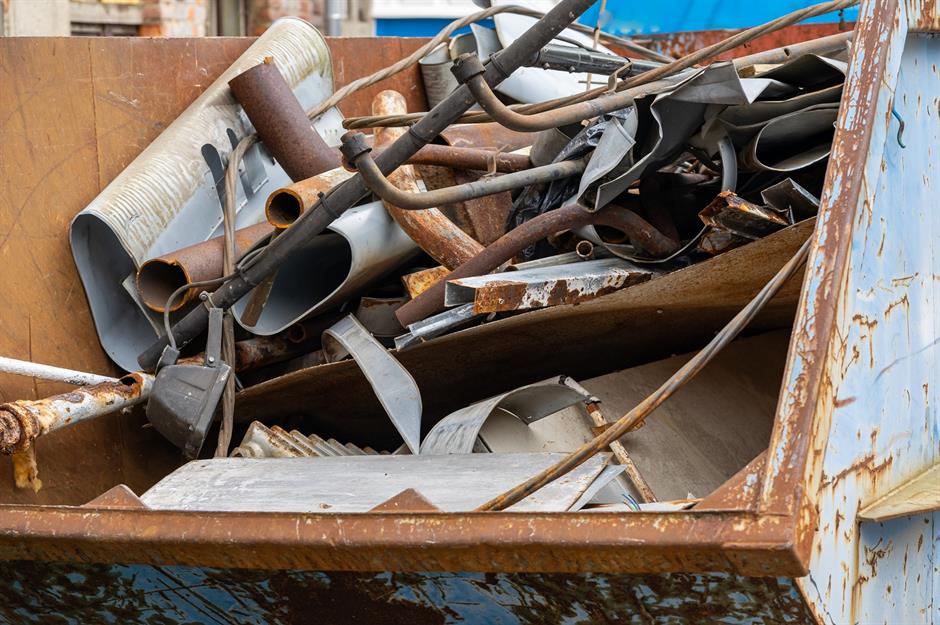
If you happen to have scrap metal that needs to be disposed of, then you're in luck, because it can be placed in your skip. Your skip hire company will then sort, process and recycle (or resell) the metal, reducing landfill waste.
Scrap metal is generally worth money, so you could also consider selling yours to a specialist facility. For example, a tonne of copper wire could be worth £5,600, according to the metal recycling centre Reclamet.
What CAN go in a skip: carpet
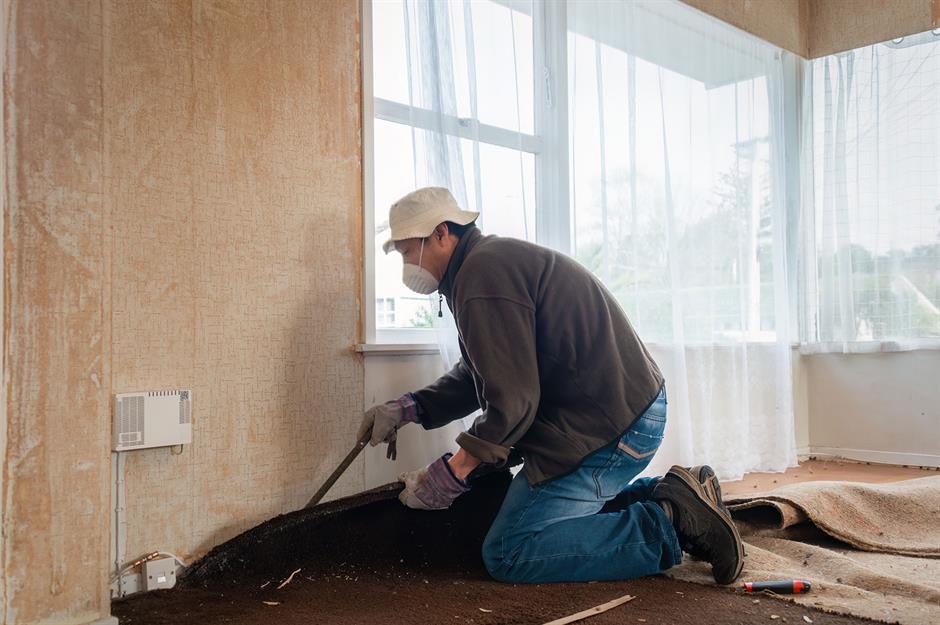
If you’re pulling up old carpets, then they cannot go into your household waste. But luckily, carpets can be put in your skip.
Rolling up bulky lengths or even cutting the carpet before it goes in the skip will make the most of the room you have, too.
What CAN go in a skip: wooden furniture

Furniture that is past its best or that you’ve simply fallen out of love with can also go in the skip. However, if there’s a chance that someone might find use for it, then consider donating it to a charity, such as the British Heart Foundation.
You could also sell your old furnishings or give them away via a local forum or community group. If it’s really had it, though, put it in the skip and break it up, if you can, to leave space for other things.
Sponsored Content
What CAN go in a skip: fabric and soft furnishings
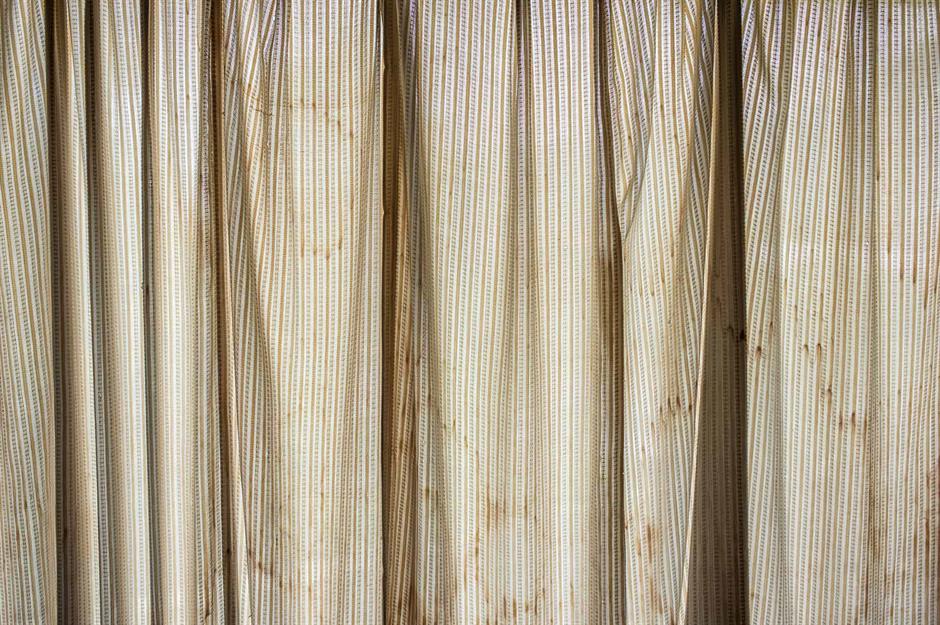
Often, the best thing to do with old curtains and textiles is to take them to a charity shop or even a recycling centre, but if yours are in a terrible state and of no use to anyone, then they can go in a skip.
This also applies to other soft furnishings, such as tired duvets and tatty cushions.
What CAN go in a skip: kitchen units
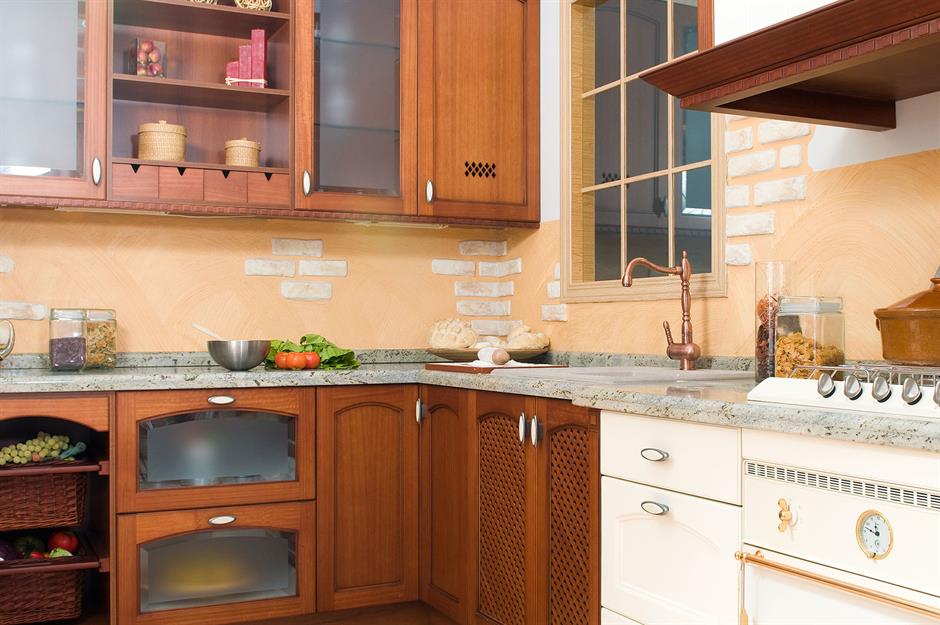
If you are getting a new kitchen, then the consensus is that your old one can go in the skip. If it’s falling to bits, break it up as much as you can before it goes in (or ask your builder).
If it’s still in good nick but just not your style, then it’s worth advertising it on a local forum, such as Facebook Marketplace or Gumtree, as someone might want to take it off your hands for a cheap price.
What CAN go in a skip: gas items

Gas items, such as old cookers, can also be safely placed into your skip, but make sure to check that the main gas line has been disconnected by a professional before you start removing that heavy hob.
Having said that, it’s a big no-no to put gas cylinders into your skip, whether full or empty, as these are still considered hazardous items.
Sponsored Content
What CAN go in a skip: bathroom suite
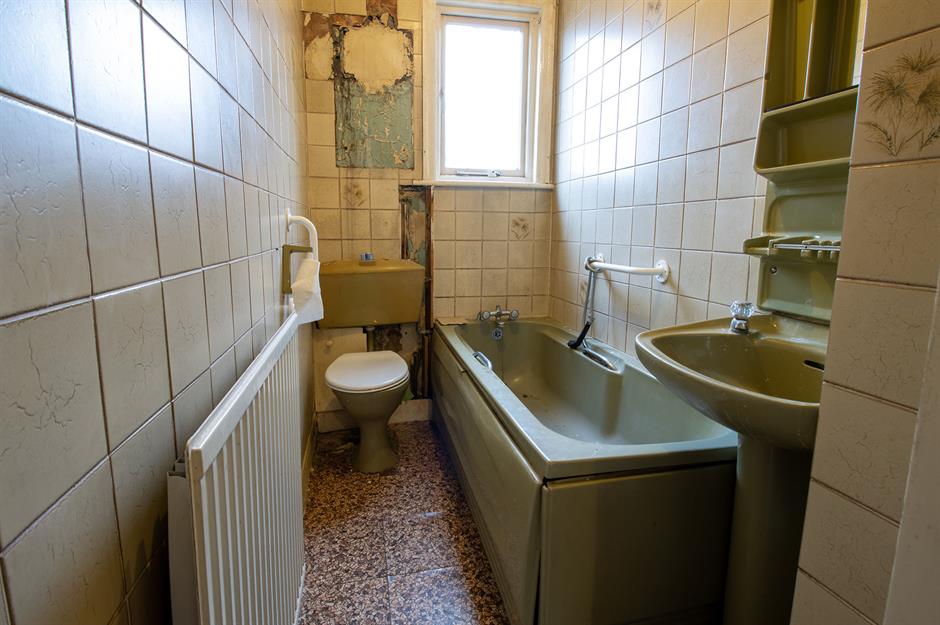
Getting a new bathroom? You can get rid of your old suite – avocado varieties included – as ceramics like toilets, sinks and baths are all OK to go in your skip.
Again, you could try to sell your old bathroom suite online or give it away to a good home. Whether it’s a DIY job or you’ve got builders on the case, it’s time for out with the old and in with the new.
What CAN go in a skip: tiles and bricks

Whether you’re ripping out an old kitchen or bathroom, or knocking down a wall, home renovations often result in unwanted wall and floor tiles, not to mention bricks and other construction waste.
If they are still largely intact, they may be of use to someone, so it’s worth offering them to neighbours or listing a job lot for sale, but otherwise feel free to put them in your skip.
What CAN go in a skip: garden furniture
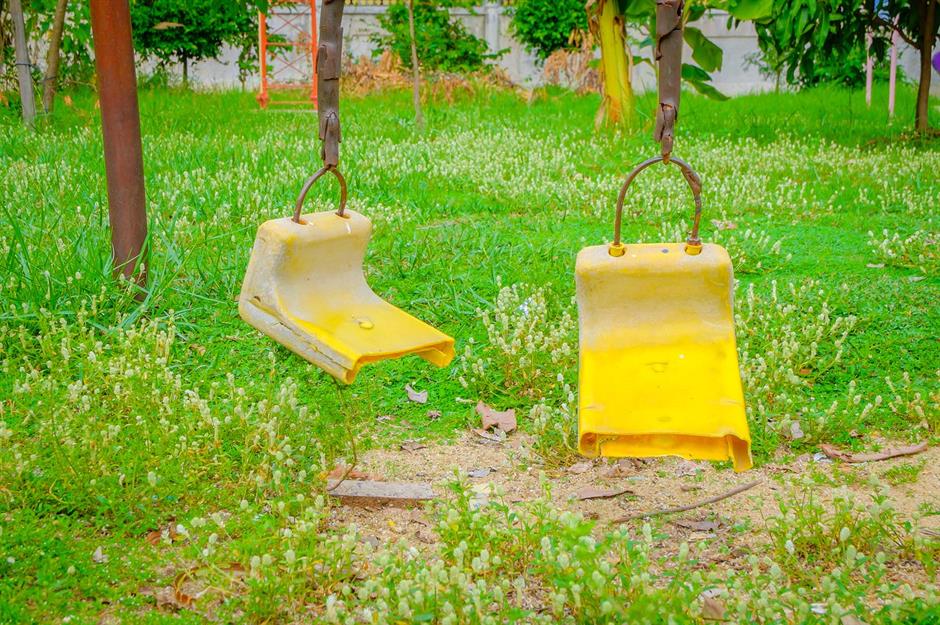
Want to finally get rid of that rusty or broken bench in the garden? How about the climbing frame or swing set that have been used to within an inch of their lives?
These items are all fine to go in the skip and just think of all that extra space you’ll have afterwards.
Sponsored Content
What CAN go in a skip: mattresses
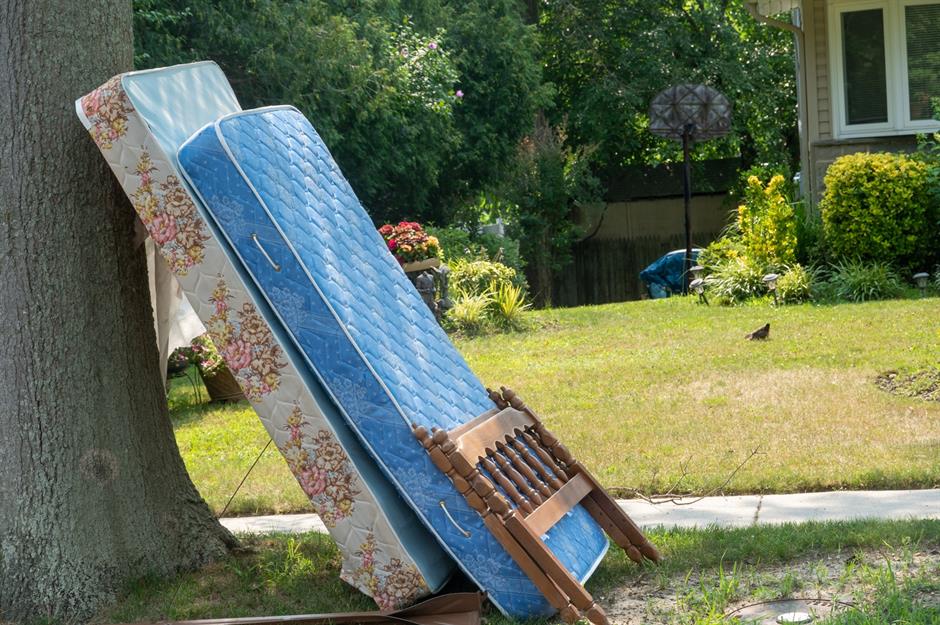
Buying a new mattress is one of the best shopping decisions you'll ever make and that first night sleeping on it is pure bliss! But what to do with your old one?
As of late 2022, the Environment Agency has classed them as POPs – Persistent Organic Pollutants and banned them from landfill disposal routes. This means some skip companies will now charge an extra fee to take them, while others could refuse them altogether. So, you may wish to explore other options with your council first.
What CAN go in a skip: sofas
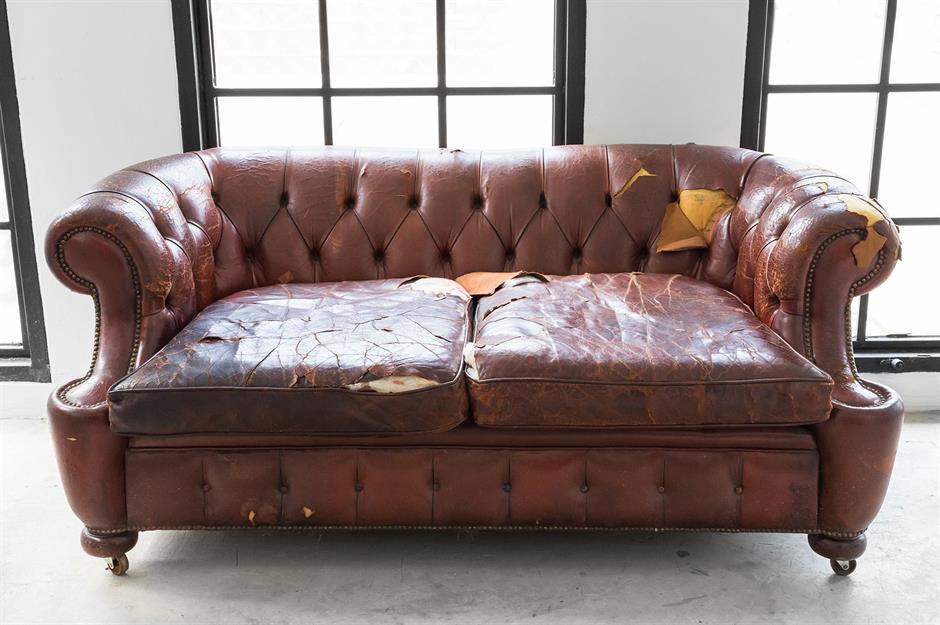
Our sofas are used to lounge on for long stretches of time, to snuggle up with our pets and even as trampolines by the kids, meaning there often becomes a time when they’re done for.
If your sofa has a saggy bottom, then it's time to say goodbye. Many skip companies do accept sofas, but be aware that some may charge an extra fee, so be sure to do your research.
What you should AVOID putting in a skip: plasterboard
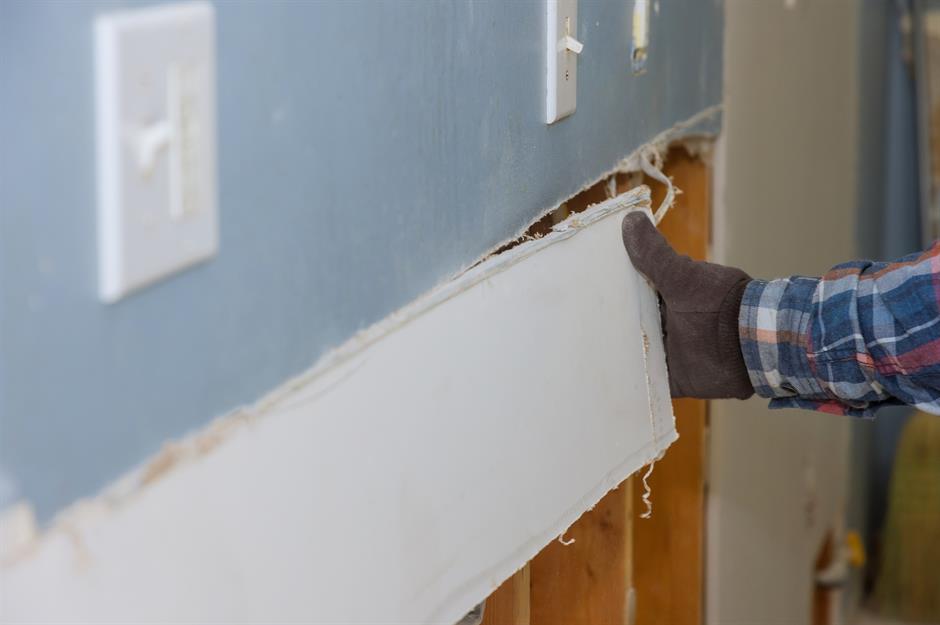
This might come as a surprise, but plasterboard was banned from landfills in the UK in April 2009, meaning that it isn’t allowed in the skip, either. That’s because mixing plasterboard with other waste can produce Hydrogen Sulphide – a colourless gas that is poisonous, corrosive, flammable and even explosive.
Instead, dispose of your plasterboard at your local council-run recycling centre. Head to your council's website to check whether yours will accept it. If they won't, you'll need to hire a local waste disposal business for the task.
Sponsored Content
What you should AVOID putting in a skip: electricals
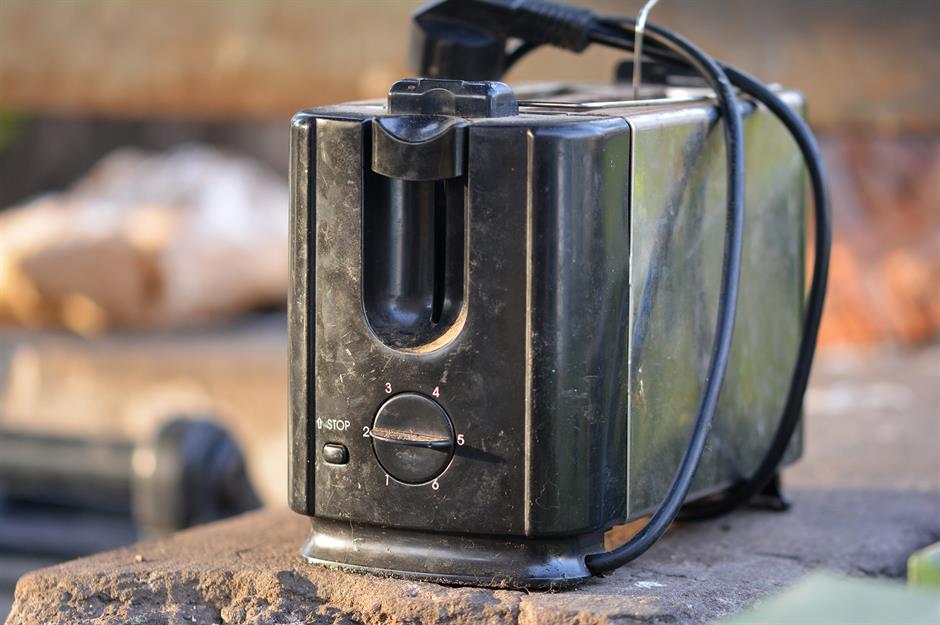
Old electric goods, be they from the last decade or even the last century, cannot be placed in a skip. If they're still in good working order, ask your friends or family if they would like some vintage gadgets, or donate to a local school or community centre.
If you can’t find a new home for an item, then you may find that the manufacturer offers a recycling scheme, or you can check with your local recycling bank.
What you should AVOID putting in a skip: paper and cardboard
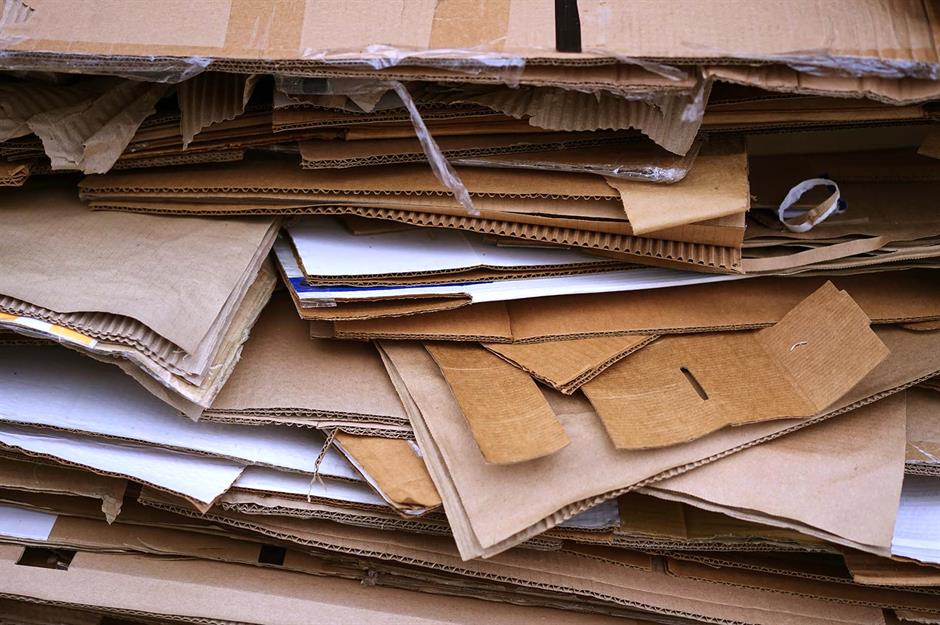
While it may be tempting to throw cardboard packaging and scrap paper in a skip, it’s not really the done thing, as it’s so easy to recycle.
Instead, you can split it gradually between your regular recycling collections, or you can pay a visit to your local recycling centre. Repeat after us: reduce, reuse, recycle.
What you should AVOID putting in a skip: paint cans
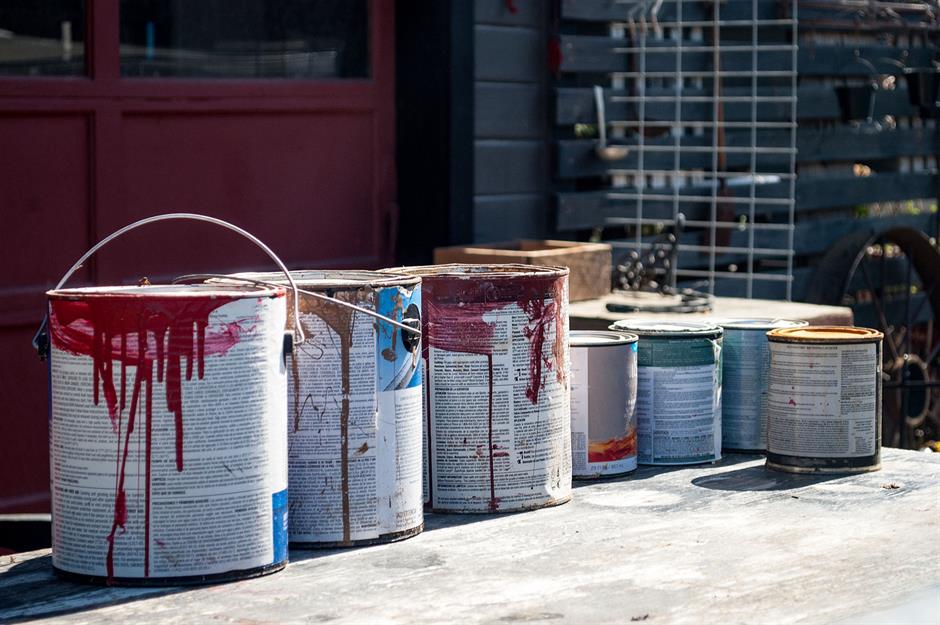
Paint or cans that still have paint left in them are not allowed in skips. If you have space, consider keeping them for use at some other point in time – you’ll thank yourself when you need to do a touch-up job.
Alternatively, Community RePaint is a UK-wide scheme that collects leftover paint and makes it available to community groups and families in social need. Remember to never pour paint down sinks or drains, as it is damaging to the environment and your pipes!
Sponsored Content
What you should AVOID putting in a skip: batteries
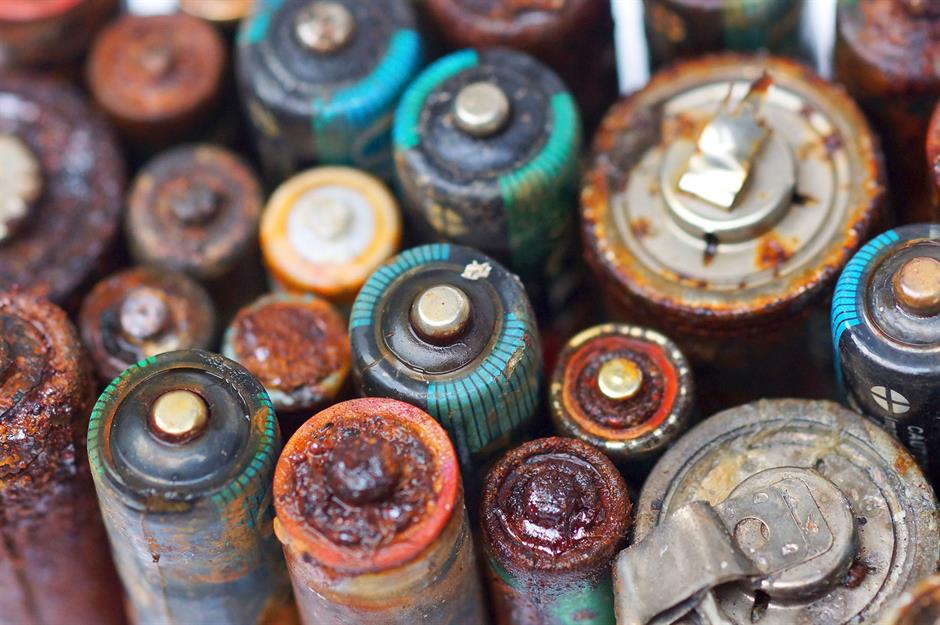
We all have them lying around the house, cluttering our drawers, but as tempting as it might be, you cannot dispose of old batteries in a skip, or your normal household waste.
Batteries contain lots of chemicals that can be harmful to animals, people and the environment. So, send them to your local council’s battery bank. Some major shops and supermarkets also offer battery recycling drop-off points, too.
What you should AVOID putting in a skip: asbestos
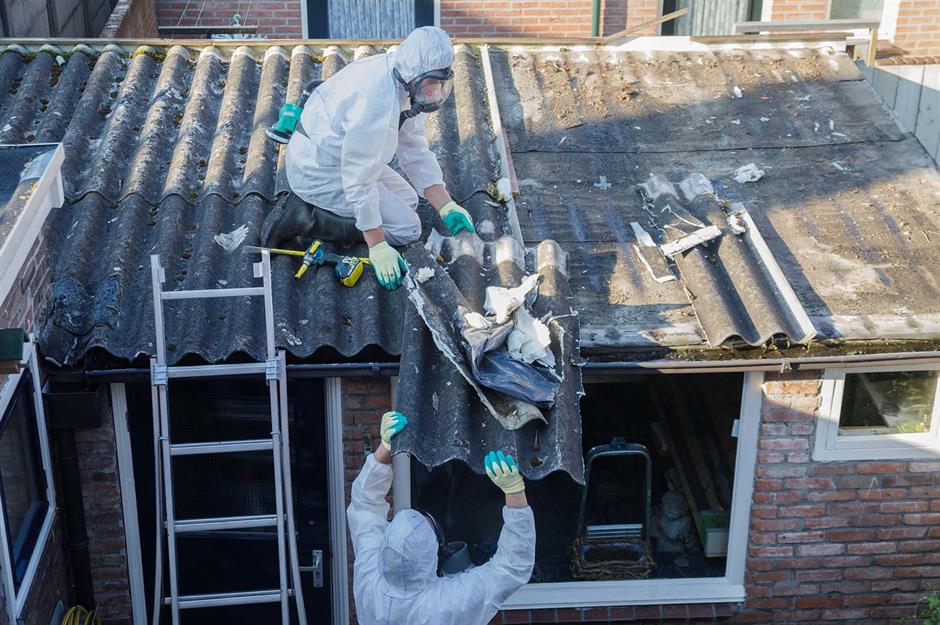
Some things shouldn’t need saying, but just in case: you cannot place anything with asbestos in a skip. It is hazardous waste that will not only contaminate everything else in your skip, but is also harmful to anyone who might encounter it.
The only safe and legal way to get rid of asbestos is through a reputable asbestos removal company.
Skip etiquette: dos and don’ts
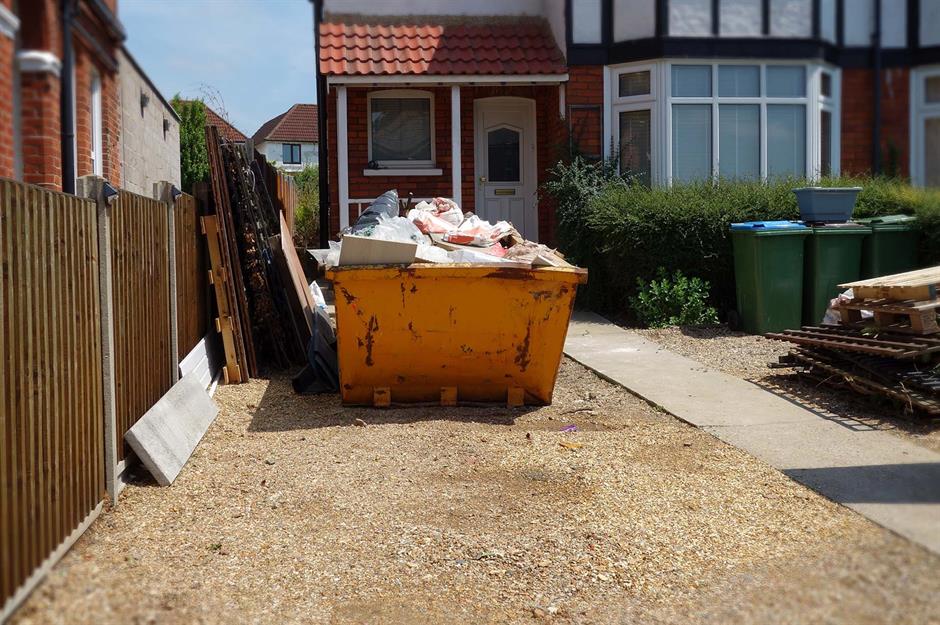
Think your neighbours won’t mind you adding one more item to their skip? Don’t assume, always ask! Not only is it rude, but it could be considered fly-tipping, which carries a hefty fine.
Likewise, if you see something in a skip that you quite fancy for yourself, it’s worth asking before you take it, especially if you know them, as sometimes builders dump things they shouldn’t. And never take something that is simply placed near a skip, as it might still be in use.
Loved this? Check out more handy DIY and decorating advice
Sponsored Content
Comments
Be the first to comment
Do you want to comment on this article? You need to be signed in for this feature